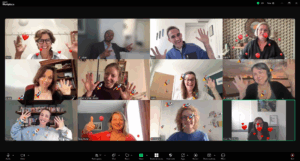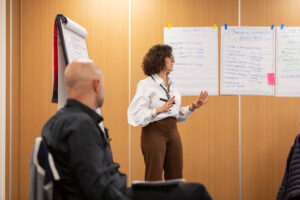The Role of the Coach in Relationship Systems Coaching: Navigating Complexity with Systemic Mastery
Relationship Systems Coaching (RSC) emphasises the interconnected nature of relationships within teams, organisations, or any collective entity. With RSC, the role of the coach takes on a nuanced dimension, requiring a unique set of responsibilities and skills.
Let’s explore the essential elements that define the role of a coach in Relationship Systems Coaching, with a focus on the concept of systemic thinking.
1. Embracing Systemic Thinking:
At the heart of Relationship Systems Coaching is the practice of systemic thinking. Coaches in the RSC domain understand that individual actions and dynamics are inseparable from the broader context of the relationship system. They view the team or organisation as a living, interconnected entity where each part influences and is influenced by the whole.
2. Navigating Complexity:
Relationship systems are inherently complex, with multiple layers of relationships and intricate dynamics. The RSC coach excels in navigating this complexity. They guide individuals and teams through the intricacies of their interactions, helping them understand the underlying patterns and influences that shape their relationships.
3. Facilitating Open Communication:
Effective communication is a cornerstone of healthy relationships. RSC coaches not only encourage open communication but also facilitate it within the team. They create spaces for dialogue, ensuring that every voice is heard, and guide conversations that lead to a deeper understanding of each other’s perspectives.
4. Systemic Constellations: Illuminating Dynamics:
Systemic Constellations, a powerful tool in the RSC toolkit, allows coaches to visually represent the relationships within a system. Coaches use this tool to illuminate hidden dynamics, making the intangible aspects of relationships more tangible and providing profound insights for the individuals involved.
5. Deep Democracy: Including All Voices:
In the world of RSC, the concept of Deep Democracy underscores the importance of including all voices within a system, even those on the margins. Coaches ensure that diverse perspectives are acknowledged and integrated, fostering an inclusive environment where every individual feels seen and valued.
6. Embodying Neutrality and Presence:
RSC coaches maintain a stance of neutrality and presence. While they are actively engaged in the coaching process, they do so without attachment to specific outcomes. This neutrality allows them to navigate conflicts and challenges without being drawn into the emotional dynamics of the team.
7. Leveraging the COIN Model for Conflict Resolution:
The COIN model (Context, Observation, Impact, and Next) is a key tool used by RSC coaches to guide teams through conflict resolution. Coaches help teams explore the nature of the conflict, envision a positive outcome, understand the identities at play, and visualise a new, harmonious state.
8. Continuous Learning:
The RSC coach recognises that learning is an ongoing process within a relationship system. They foster a culture of continuous learning, encouraging individuals and teams to reflect on their experiences, adjust their approaches, and embrace opportunities for growth and development.
In essence, the coach in Relationship Systems Coaching is a guide, a facilitator, and a systemic thinker. They navigate the intricate web of relationships, fostering a culture of open communication, inclusivity, and continuous learning. With systemic mastery at the core of their approach, RSC coaches play a pivotal role in helping teams thrive within the complexity of their interconnected relationships.
If you’re looking into progressing towards mastery, join us on one of our upcoming series and become an ORSC practitioner and masterful team coach. Our next one starts in March and you can register here.
If you’d like to become a masterful facilitator, join us for our 3-day in-person Alchemy course, taking place in our brand new training space in Moorgate, London on 15th – 18th March. Register here.






